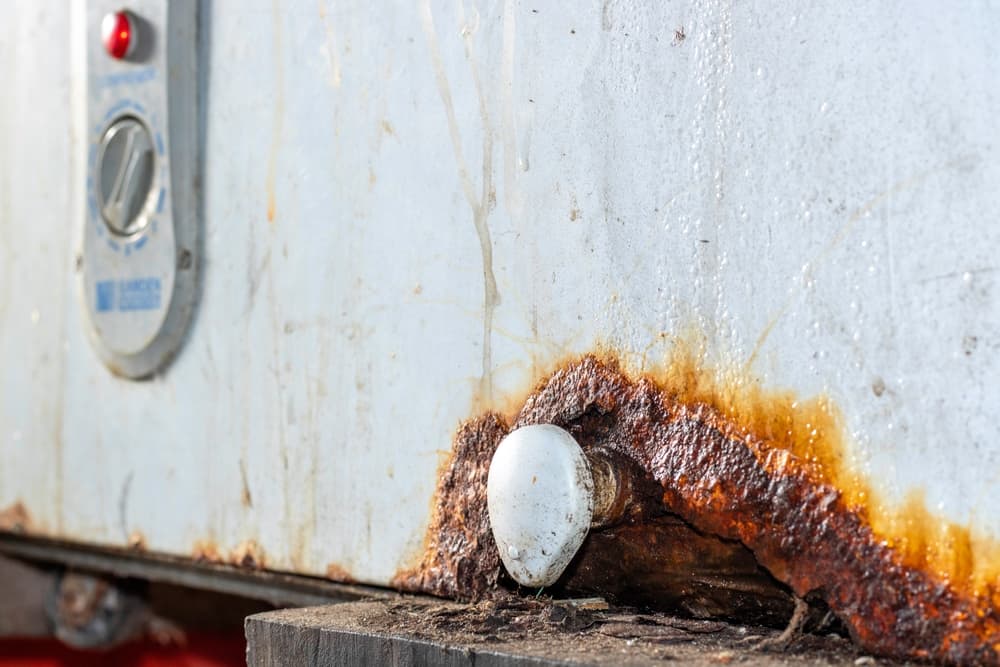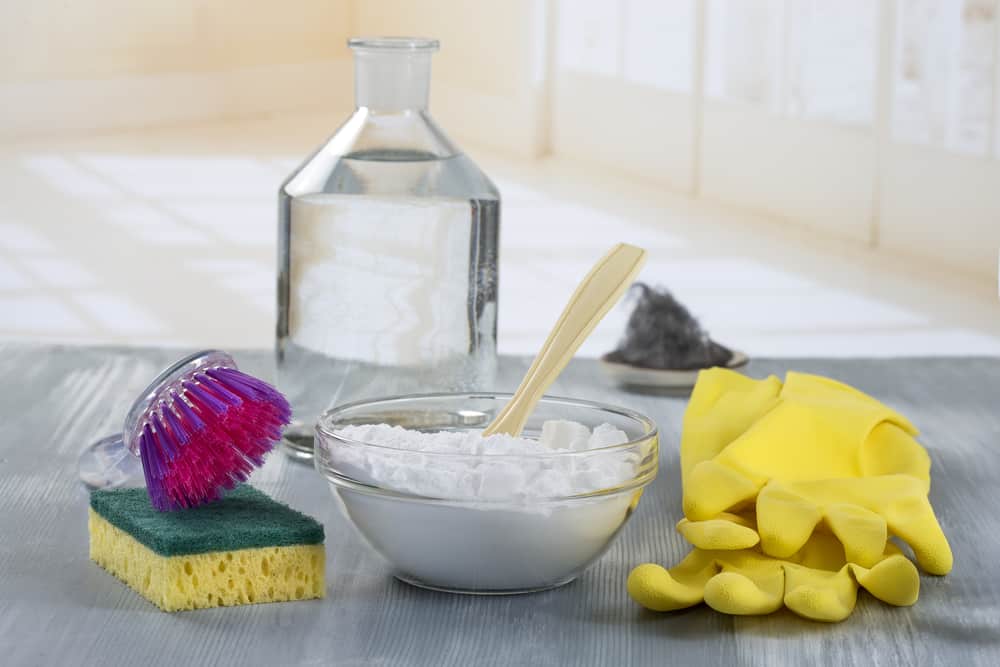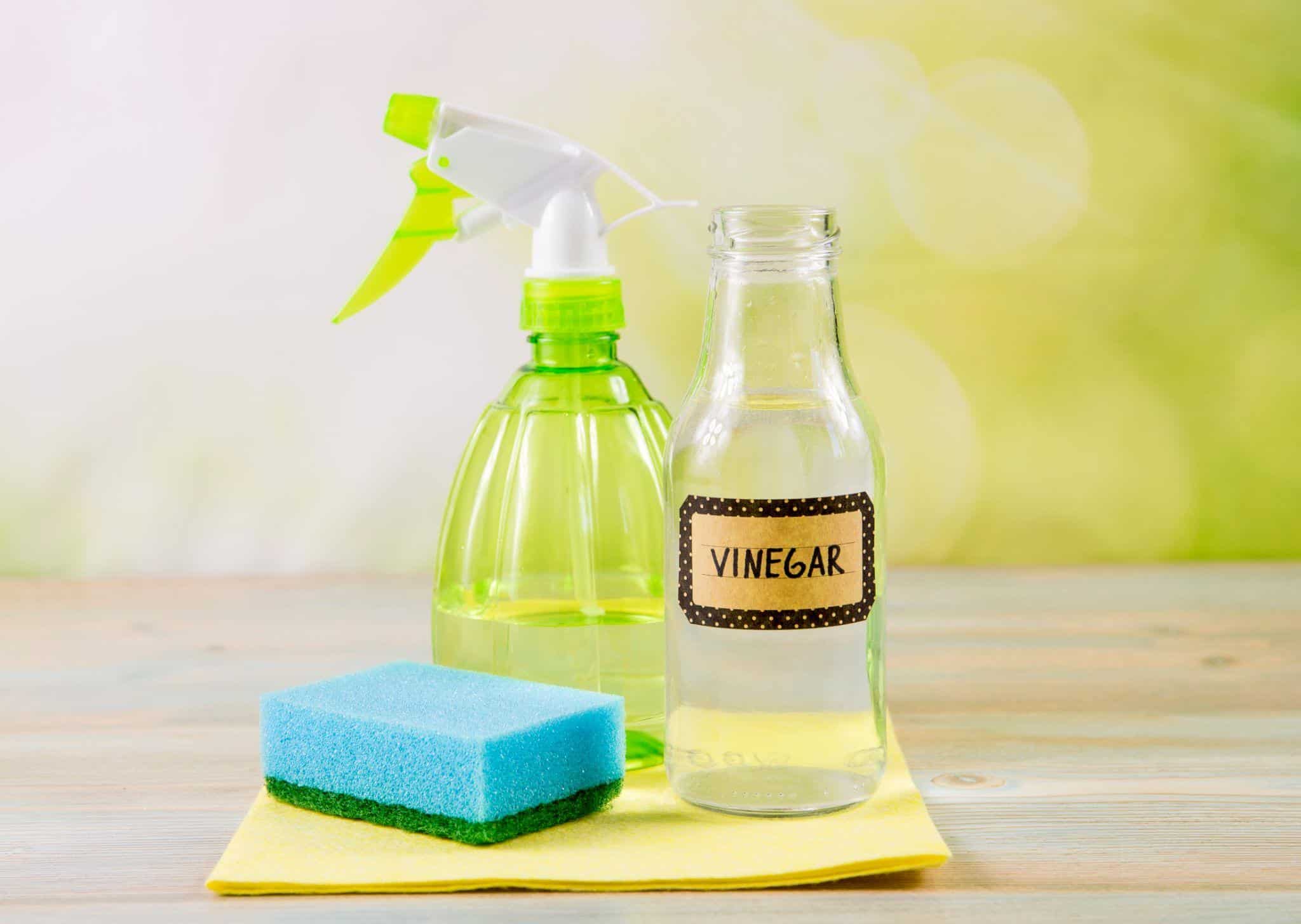Often, metal rusts in high humidity, and it’s common to find corrosion in the form of rust in places where moisture gets into contact with metal. This can happen in many home appliances, but is probably most common in a refrigerator or freezer.
It might surprise you if you find your chest freezer has rust since this is something that rarely happens. However, rust can occur, especially if certain areas of the freezer get neglected for a long time.

Rust on the outside of an old refrigerator
With the rusting parts of your freezer, you must be curious to know whether rust in the freezer is bad and how you can deal with it.
Most freezers consist of stainless steel. Stainless steel freezers have a layer of chromium that protects the iron underneath.
If your freezer’s wall lining gets compromised or cracks, the iron underneath gets exposed to oxygen. Since rust forms in oxygenated iron, you can see how this could be a problem!
The food in the freezer will not absorb any rust so long as your frozen food has been wrapped up in sealed, adequate food packaging. Canned food should also do just fine if rust is present in the freezer. Nonetheless, rust makes for an ugly and untidy sight.
Worse, if rust doesn’t get removed quickly, it can spread throughout the inside lining of your freezer.
Rust is iron oxide. We consider iron oxide to be benign when ingested. From a food safety standpoint, it won’t ordinarily cause you to be sick. However, iron poisoning is a serious illness that can be caused by eating a large amount of iron over time. Chances of rust-causing this are low, but it is still not something you need to risk!
Rust can attach itself to your skin when you touch a surface that has it. Once again, the rust won’t harm you or your skin. However, it will leave a stain.
Make sure you don’t attempt to use any chemical rust remover on your skin. These chemicals aim to remove rust from metallic surfaces. The rust may not harm your skin, but those chemicals sure will!
Most people understand that stainless steel materials are not supposed to rust. For that reason, it comes as a surprise that you noticed rust on different parts of the freezer, such as the freezer door or other external parts.
Stainless steel is coated with chromium oxide to ensure it’s rust-resistant. Once you scratch this coating using an abrasive, you will notice why stainless steel isn’t categorized as rustproof. The chromium oxide layer can rust much faster than the actual steel metal.
To remove rust stain from the freezer, you will require a cleansing agent and a soft, non-abrasive cloth. A mixture of one tablespoon of baking soda and 2 cups of water can be used as the cleaning agent here.

Baking soda can be used as a cleaning agent to remove rust
Dip the cleaning cloth in the baking soda mixture and rub it on the steel. Give it about 30 minutes for the baking soda mixture to do its magic. Scrub the surface with a small brush and wipe it dry.
If you want to remove rust from a small area, baking soda mixed with lemon juice is a great option-Mix equal amounts of lemon juice and baking soda to form a paste. Apply the prepared paste to the surface you want to clean and give it 15-30 minutes. Use a damp sponge to scrub the surface to remove the rust. Clean the surface and wipe it dry using a soft towel or paper towels.
Stainless steel can survive for ages without rusting if kept clean. Therefore, it’s essential to always keep the freezer clean. Avoid using abrasives or other products containing chlorides since they can easily corrode the metal, exposing it to rust.
You’ve often heard that vinegar can be used to clean the freezer. If you’re dealing with rust stains, vinegar can be handy. Use a soft rag or sponge and dampen it in the vinegar. Rub the rust stain until fully removed. Repeat the process for tough stains.

Vinegar is another option to remove rust from appliances
Using cleaning vinegar is best for stainless steel appliances. One of the main reasons this type of vinegar is considered a helpful cleaning agent is its 6% acidity.
Regular vinegar has 5% acidity. So, when shopping for vinegar to remove rust, be sure to ask for the cleaning vinegar and not the regular type of vinegar.
You can also buy cleaners that have oxalic acid. There are a couple of brands in the market, so it shouldn’t be challenging to find the best type from your nearest home improvement store.
Spray the liquid cleanser on the metallic surface and scrub off the rust using a sponge. Rub until the stain wipes off. Add more of the cleanser if needed. After that, wash the area using clean water and dry it using paper towels. Steer clear of caustic cleaners because they contain chlorides that are too abrasive.
Baking soda paste can be used to wipe out these rust stains. However, for heavy discoloration, vinegar is highly recommended. Lemon juice can also do the trick here.
The goal is to use acids that dissolve rust. Ensure you apply the cleaning acid on the surface and give it time to work. About 30 minutes to one hour should be enough for the liquid to do its magic.
For enameled coated steel, avoid mixing baking soda with lemon juice. Use baking soda or lemon juice on its own. If they fail to work, use vinegar.
If you have a walk-in freezer, rust may occur on the panels or the floor surfaces due to frequent use of the door. To prevent rusting of the floors and panels, consider installing rubber flooring. Alternatively, you can paint the floor using epoxy paint.
You may notice that after some time, the floor or panels might rust. If this happens, you can remove the rust stains using the tricks discussed above. You can use baking soda or cleaning vinegar, depending on how your cleaning preference and how accessible the cleaning agent is.
Always clean up spills to prevent rust from developing on or in your freezer. Wipe the freezer surfaces dry every time you’re doing the cleaning. Ensure that you use recommended cleaners by the manufacturer or retailer. Periodically, check the freezer for any spills that may have gone unnoticed.
